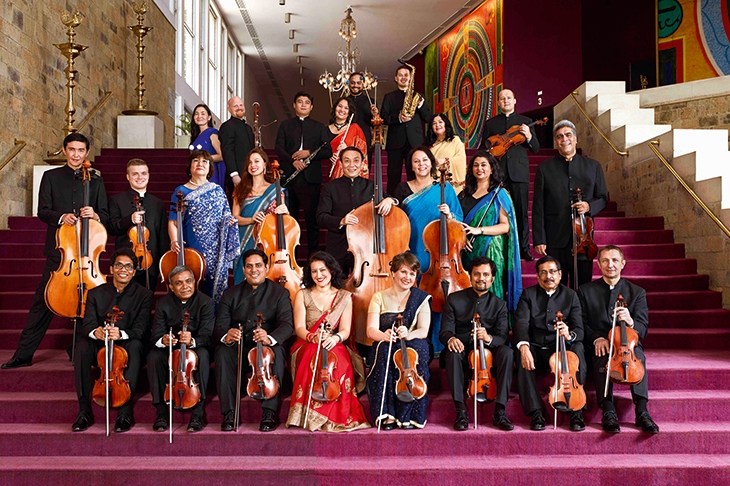It’s a 31ºC Mumbai morning, and on Marine Drive the Russian winter is closing in. The Symphony Orchestra of India (SOI) is rehearsing Rachmaninov’s Second Symphony ahead of its first ever UK tour, and even on the campus of the National Centre for the Performing Arts (NCPA) — a palm-shaded tropical Barbican next to the Arabian Sea — this is still music to raise a shiver. Strings sigh; horns call across frozen steppes. Then the guest conductor Martyn Brabbins gives the signal for a break and players spill into the foyer, chatting and gulping tea. If the sky were more grey and the tea less sweet, it could be a general rehearsal anywhere in the UK. The most surprising thing isn’t that this is happening amid the dust and taxi horns of downtown Mumbai, or even the emotional dissonance of hearing Rachmaninov in a hot climate. It’s that this orchestra exists at all.
Whatever else the British might have left in India, they never really got around to classical music. Japan has orchestras of international stature. China is training new Lang Langs and Yuja Wangs at a dizzying rate. Yet India — with 125 million English speakers and centuries of cultural exchange with the West — never had a professional western orchestra until the SOI was founded in 2006. Thirteen years later, it’s still the only one. But it’s the genuine article, playing to capacity audiences and supported by a full-time staff who for all their professionalism — you sense — can’t quite believe that this is really happening either.
Zane Dalal is the SOI’s associate music director, and he’ll be conducting much of its British tour. It’s not unknown for Oxbridge organ scholars (he was at Oriel) to end up as orchestral conductors, but few can have taken quite such an unexpected career path.







Comments
Join the debate for just $5 for 3 months
Be part of the conversation with other Spectator readers by getting your first three months for $5.
UNLOCK ACCESS Just $5 for 3 monthsAlready a subscriber? Log in